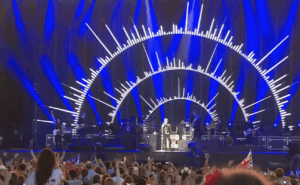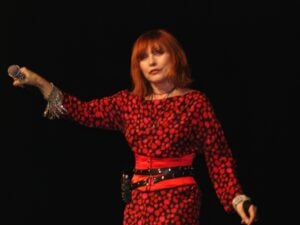Oasis Will Cancel Illegal Resale Tickets Bought After Prices Soar To $8,000

LONDON - OCTOBER 16: L-R Noel and Liam Gallagher attend the Oasis photocall in Wembley Stadium to promote their new album 'Dig out Your Soul' released on October 6, and their two sold out concerts at Wembley Arena, on October 16, 2008 in London, England. (Photo by Dave Hogan/Getty Images)
The early bird sale for Oasis reunion tickets has sparked a frenzy, with some resellers demanding prices as high as $8,000. Just hours after the three-hour pre-sale window closed on August 30, tickets began appearing on third-party resale sites, listed at exorbitant prices—up to 40 times their face value.
In response to this surge in prices, the band issued a warning: any tickets found to be sold illegally will be canceled. “We have noticed people attempting to sell tickets on the secondary market since the start of the pre-sale,” read a statement from Oasis.
“Please note, tickets can ONLY be resold, at face value, via Ticketmaster and Twickets. Tickets sold in breach of the terms and conditions will be canceled by the promoters.”
Approximately 1.4 million tickets are expected to be sold for the 17 shows across the U.K. and Ireland. Official ticket prices range from about £70 to £200 ($90-260) for seated tickets, around £150 ($200) for standing, and up to £500 ($650) for premium packages. Despite these reasonable starting prices, resellers have listed tickets at significantly higher rates. For example, the BBC reported that tickets for the London show on July 26 were listed for £6,000 ($7,880), while seats for the opening concert in Cardiff were going for £4,500 ($5,900). Tickets for Edinburgh on August 12 were over £4,000 ($5,250), and tickets for Manchester’s homecoming event on July 12 exceeded £2,500 ($3,280).
Reseller Claims Ticket Resales Help Prevent Scams
While reselling tickets is legal in the U.K., some parties argue it’s not always in the fans’ best interests. Viagogo, a third-party resale platform, criticized actions taken by event organizers to limit ticket sales to specific platforms, calling such measures “anti-competitive.” They argued that these restrictions “ultimately harm fans by limiting their choice” and lead to a “surge in scams.”
General ticket sales started on August 31 with eager fans securing their spots at the highly anticipated reunion shows.













